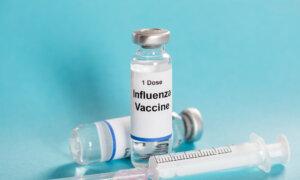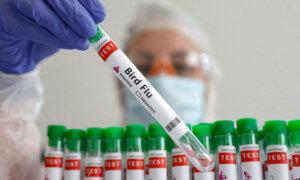‘We recognize that there are challenges here, and we are responding to them,’ said Dr. Henry Walke, director of the CDC’s Office of Readiness and Response.
Public health officials from three different agencies testified before members of Congress at a Nov. 14 hearing and cited communication challenges when asked about Americans’ waning trust in federal health agencies after the COVID-19 pandemic.
The matter was highlighted by Rep. Debbie Lesko (R-Ariz.), who asked officials from several national health agencies the following question at the final hearing of the House Oversight Committee’s Select Subcommittee on the Coronavirus Pandemic:
“The Americans have decreased trust, less trust, in the federal health agencies after COVID. And I want to know from each of you if you or your agencies believe that you played a role in that. And if so, how are you going to change it?” Lesko asked.
The officials include National Institutes of Health (NIH) Deputy Director Lawrence Tabak, Dr. Henry Walke, director of the Centers for Disease Control and Prevention’s (CDC) Office of Readiness and Response, and Dr. Hilary Marston, chief medical officer for the U.S. Food and Drug Administration.
The officials did not expressly answer whether they believed their agencies played a role in diminished public trust, but they highlighted the communication challenges their agencies faced throughout the pandemic, as well as a need to improve transparency and the way they share the latest data and information with the public.
“This was a very fluid situation, as you, of course, appreciate from your work on this committee, and we understand that we have to do a much, much better job of being more transparent, of doing better communication, of getting into communities, working with trusted partners in communities,” Tabak said.
“You just can’t … parachute in and expect people to benefit from your wisdom. You have to have a real conversation with them in a transparent manner.”
Dr. Henry Walke, director of the Centers for Disease Control and Prevention’s (CDC) Office of Readiness and Response, said he concurred with Tabak’s assessment.
“The pandemic was moving quickly, the virus was changing rapidly, we were putting out a lot of guidance almost weekly, and it became very difficult even to find the information that was needed on our CDC.gov website,” Walke said.
“We recognize that there are challenges here, and we are responding to them.”
He said some changes are already underway, such as the streamlining of the agency’s website and updating it with simpler language.
Dr. Hilary Marston, chief medical officer for the U.S. Food and Drug Administration, said her agency is also working on improving its approach by collaborating with others who “have the ear of the American people” and maintaining high standards for the information it puts out.
One issue that members brought up repeatedly throughout the hearing—including in response to the health officials’ calls for transparency—was that Dr. David Morens, a former top adviser to former National Institute of Allergy and Infectious Diseases (NIAID) Director Anthony Fauci, remains employed by the NIH.
Morens was writing to Peter Daszak, president of the EcoHealth Alliance group, which allocated money from NIAID to the Wuhan Institute of Virology in China.
In the missive, he told Daszak that he “deleted most of those other emails” after forwarding them to his personal email account.
Referencing Morens’s communications with Daszak, Rep. James Comer, Chairman of the Oversight Committee, noted that Morens told the subcommittee under oath that he never deleted an official record from his NIH email account.
“It looks to me like he lied to Congress. That’s a felony,” Comer said.
Lesko also took issue with Morens’s continued employment in light of the committee’s findings.
“Why can’t you fire him?” she asked Tabak. “I don’t understand why it hasn’t happened.”
Tabak replied that NIH was following its process for employee misconduct.
Asked what that process entails, he said employees are given an opportunity to present their side of the situation and appeal the first determination regarding their employment.
“Then that goes to a second official for a final adjudication. So we follow our process, and that’s what we’re doing,” he said.
Asked if that process had been initiated, Tabak said he couldn’t discuss the specifics.
Kennedy, a skeptic of the efficacy and safety of vaccines in general, was a vocal critic of COVID-19 vaccine mandates during the pandemic. As a member of Trump’s administration, he has promised to “make America healthy again.”
“For too long, Americans have been crushed by the industrial food complex and drug companies who have engaged in deception, misinformation, and disinformation when it comes to Public Health,” Trump said in a statement announcing Kennedy’s appointment.
“Mr. Kennedy will restore these agencies to the traditions of Gold Standard Scientific Research, and beacons of transparency, to end the chronic disease epidemic, and to Make America Great and Healthy Again!”
Original News Source Link – Epoch Times
Running For Office? Conservative Campaign Consulting – Election Day Strategies!


